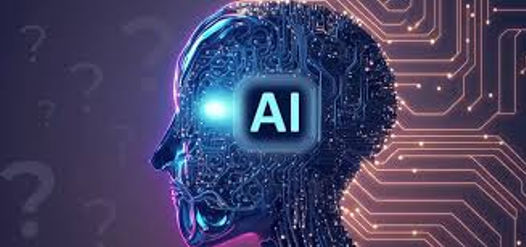


understanding AI can lead to improved decision-making and the ability to adapt to technological advancements
Learning AI is necessary because it equips individuals with essential skills for the future job market, where AI is increasingly prevalent. It fosters innovation, enhances problem-solving capabilities, and promotes ethical understanding of technology’s impact on society. As AI continues to shape various industries, knowledge in this field empowers individuals to leverage its potential effectively and responsibly, ensuring they remain competitive and informed in a rapidly evolving landscape. Additionally, understanding AI can lead to improved decision-making and the ability to adapt to technological advancements, making it a crucial area of study for personal and professional growth.
Learning artificial intelligence (AI) is increasingly recognized as a vital skill in today’s technology-driven world. As AI technologies continue to evolve and permeate various sectors, understanding AI becomes essential for several reasons, ranging from career opportunities to ethical considerations.
1. Career Opportunities and Market Demand:
The job market is rapidly changing, with AI becoming a core component of many industries, including healthcare, finance, marketing, and manufacturing. Companies are seeking professionals who can understand, implement, and manage AI technologies. By learning AI, individuals position themselves favorably in the job market, enhancing their employability and career prospects. Roles such as data scientists, machine learning engineers, and AI researchers are in high demand, and having AI skills can lead to lucrative job opportunities.
2. Innovation and Problem-Solving:
AI has the potential to drive innovation by enabling new solutions to complex problems. Learning AI equips individuals with the tools to analyze data, identify patterns, and develop algorithms that can automate processes or enhance decision-making. This capability is crucial for businesses looking to improve efficiency, reduce costs, and create innovative products and services. By understanding AI, individuals can contribute to advancements in technology and drive meaningful change within their organizations.
3. Interdisciplinary Applications:
AI is not confined to a single field; it intersects with various disciplines, including biology, psychology, economics, and engineering. Learning AI fosters interdisciplinary collaboration, allowing individuals to apply AI techniques in diverse contexts. For instance, in healthcare, AI can be used for predictive analytics to improve patient outcomes, while in environmental science, it can help model climate change scenarios. This versatility makes AI knowledge valuable across multiple domains.
4. Ethical Considerations and Responsible Use:
As AI technologies become more prevalent, ethical considerations surrounding their use are paramount. Issues such as bias in algorithms, data privacy, and the impact of automation on employment require informed individuals who can navigate these challenges responsibly. Learning AI includes understanding its ethical implications, enabling individuals to advocate for fair and equitable practices in AI development and deployment. This awareness is crucial for ensuring that AI technologies benefit society as a whole.
5. Enhancing Critical Thinking and Adaptability:
Studying AI encourages critical thinking and analytical skills. Individuals learn to approach problems methodically, breaking them down into manageable components and applying logical reasoning to find solutions. In a rapidly changing technological landscape, adaptability is essential. Learning AI helps individuals stay current with emerging technologies and trends, allowing them to pivot and adjust to new challenges effectively.
6. Empowering Individuals and Communities:
AI has the potential to empower individuals and communities by providing tools for self-improvement and social change. For example, AI can be used in education to personalize learning experiences, making education more accessible. By learning AI, individuals can harness its power to address local issues, drive community initiatives, and contribute to societal progress.
In conclusion, learning AI is necessary for personal and professional development in an increasingly digital world. It opens up career opportunities, fosters innovation, promotes ethical awareness, enhances critical thinking, and empowers individuals to make a positive impact. As AI continues to shape our future, equipping oneself with AI knowledge is not just beneficial; it is essential for thriving in a technology-driven society.
